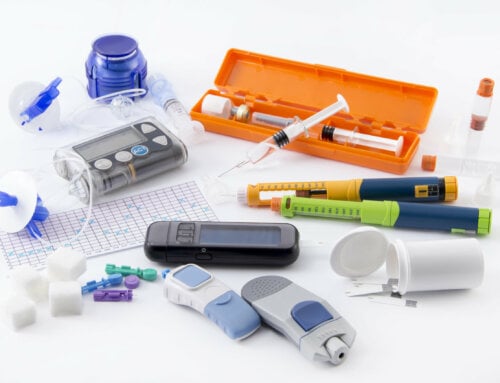Heart disease is one of the potential long-term complications of type 1 diabetes. Having type 1 diabetes increases your risk of cardiovascular problems. The risk of these complications can be dramatically reduced by keeping your blood sugar as close to normal as possible.
- People with type 1 diabetes are at a greater risk of developing cardiovascular problems such as heart attack, stroke, coronary artery disease with chest pain (angina), high blood pressure, narrowing of the arteries (atherosclerosis), and peripheral artery disease-PAD. It is important to control your blood sugar and monitor your blood pressure based on the advice of your diabetes health care team.
- Patients with type 1 diabetes are 10 times more at risk to develop heart problems than people without diabetes. Diabetes can be associated with high triglycerides, high LDL (bad cholesterol) and low HDL (good cholesterol). Foods that help boost your HDL levels include blueberries, oats, lentils, flax seeds and almonds as well as fish with omega-3s such as salmon. Stay away or limit foods that contain sugars, trans-fats, and saturated fats. Watch out for candy, cookies, cake, and processed white bread.
- If you have kidney damage as a result of having diabetes type 1 you could develop high blood pressure as well. This may lead to a heart attack or stroke. People with diabetes type 1 may also have neuropathy (nerve problems) which can be connected to poor blood flow and heart problems. Make sure your blood pressure is checked during routine medical exams. You can also use a blood pressure monitor to test it a home. Report any irregularities to your health care team right away.
- Coronary heart disease occurs when plaque builds up in the coronary arteries. Plaque is made of substances found in the blood such as cholesterol, triglycerides and fat. As it builds up in the arteries, patients can develop a condition called atherosclerosis. To avoid coronary heart disease, eat a healthy diet that includes lean meats and fish, fruits and vegetables, whole grains, and low-fat dairy foods. Exercise for at least 30 minutes, 5 days a week. Talk to your doctor about maintaining a healthy diet and exercising. Consider starting out with low-impact exercises such as walking, yoga or swimming.
- Avoid behaviors that can further increase your chances of developing heart disease. Quit smoking, limit your alcohol intake, stay away from junk food, limit your stress, learn to deal with your stress, and maintain a healthy weight. Losing just 5 to 10 percent of your overall body weight can help reduce the risks.
- Prevention is the best approach when you have diabetes type 1. Help to control risk factors by making healthy lifestyle changes and taking medications as prescribed. Physical activity can help you control your blood sugar levels, lower your blood pressure, reduce stress, and shed pounds.
- If your family has a history of heart disease, ask your doctor about diabetes testing for other family members. Early detection of diabetes can help you minimize the risk of developing cardiovascular problems. Maintaining healthy blood glucose levels, making healthy lifestyle choices, and following the advice of your diabetes health care team are the best ways to ward off heart disease. Take insulin as prescribed and report changes in your schedule to your doctor so your insulin administration can be adjusted accordingly.
While the risk of heart disease is greatly increased when you have type 1 diabetes, you still have great control over the situation. Make the right lifestyle choices, maintain healthy blood sugar levels, and monitor your condition with a physician regularly. Proper diabetes self-management can help prevent heart disease.







Leave A Comment